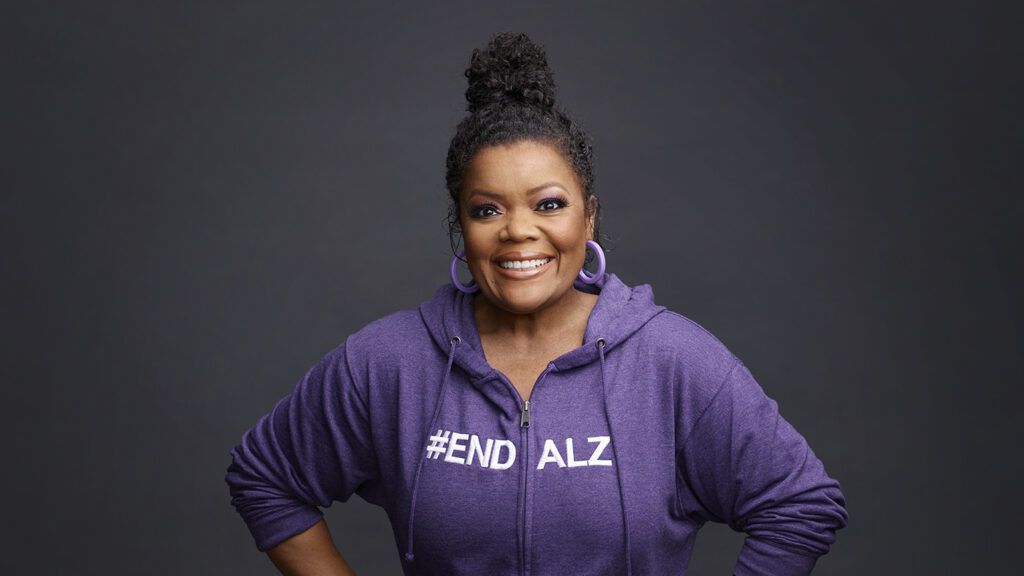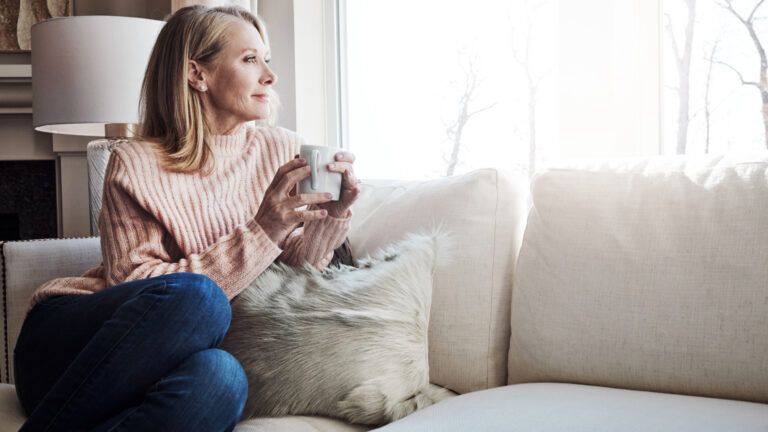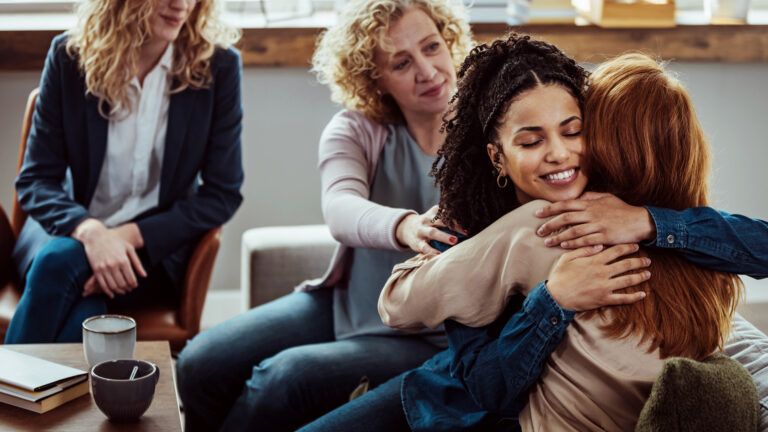Q: Tell us about your dad.
A: My parents divorced when I was one. Even though we weren’t under the same roof, Dad and I were close. I’d go to his house every other weekend. When I got older, we’d go to lots of movies together. Maybe that’s how I got my love for acting. He cheered me on when I moved from East Cleveland, Ohio, to Los Angeles to pursue acting. We’d have long phone calls every Sunday. Between TV show rehearsals, I’d go home. It was on one of those visits, about nine years ago, that I first noticed a big memory decline.

Q: What happened?
A: I was at my aunt’s. Dad could drive to her house in his sleep. Yet he kept calling me. “Yvette, I’m on this street. I don’t know why.” And I’m like, “Dad, make a right on this street and then a left.…” He kept getting lost. I thought, This is weird. I sensed Dad knew something was wrong too.
Q: After that, what did you notice?
A: Because of my TV schedule, I couldn’t fly home to take him to doctors’ appointments. I couldn’t trust that he’d figure out how to get a doctor. My aunt and her kids would check on him. I saw Dad several months later. He’d always been tidy. When I walked in his home, stuff was stacked everywhere. He had let his hair and beard grow, almost like Father Time. He was kind of bent over. It just broke my heart. I had repeatedly asked him to come live with me, and he finally said yes. Whatever was going on with him was going to be going on with me. That was the start of my becoming his caregiver. I was on the sitcom Community at the time. It had just gotten canceled. So two days later, I was back in Ohio to bring my dad to L.A.
Q: How did you react to his diagnosis?
A: A neurologist diagnosed him with dementia. Dad is on medication. We’re fighting to keep him as close to what he used to be as possible. The diagnosis was hard because I think our family was in denial about what was happening even though his dad had Alzheimer’s, which is sometimes genetic.
Q: The unpredictability of this disease is a downer. How do you cope?
A: Alzheimer’s is an unwieldy disease. One day he’s up and alert, asking if the dogs need to be fed. And the next he’s in bed, almost catatonic. If I go out on an errand or I come back, the first thing I say is “Bye, Daddy” or “Hey, Daddy.” I always wait for a “Hey, Yvette.” One day, the “Hey, Yvette” will not come. I’m preparing myself. But every day that I get a “Hey, Yvette,” I celebrate it.
Q: How has your faith helped you?
A: I had a moment where I was like, This really sucks that this is happening to my dad. But I’ve never felt bad that I’m taking care of him. It’s such a gift from God that, at my dad’s toughest moment, I’m in a position to be there for him. The whole point of being a person of faith is to endure hardship with grace and decency. And to be able to provide that same level of decency and a sense of dignity to those who are going through it. That’s what my goal is with my dad—to give him an honorable life and a fun life and a dignified life as long as he’s with me. And I pray that it’s for 20 or 30 more years. I know that would make him 108, but that’s my dream.
Q: Do you and your dad pray together?
A: We have through the years. My dad was the first one to talk to me about God. He had relatives who were pastors. A lot of who I am as a person of faith comes from my father’s side of the family. Dad was always clear that hardship is not a sign of being out of line with God. God never promised that we wouldn’t have hard times. He promised that he would be with us through it all. Which to me is perfect. I can go through anything if God is with me.
Q: What gives your dad joy?
A: He loves music. His favorite is doo-wop. I’ve read that music unlocks a certain part of the mind for people with Alzheimer’s. So I play music all the time. I think my dad owns every biopic DVD of Ray Charles, James Brown and The Temptations. He’ll watch those. I’ve found that Alzheimer’s intensifies the person you are. My dad has always been a homebody, pensive, introverted. He never was one to cook a lot, so he never touches the stove. He never tries to leave the house. He just stays in his room, reads his books, watches TV. It’s intensified that pensive, calm, kind side of him. That has been a blessing.
Q: Are there other upsides to your dad’s condition?
A: My dad’s sweet spot in regards to memory is his teens to early twenties, which is when he met, dated and married my mother. My mom moved to be close to us. She’s my rock. She stays with my dad when I’m gone for long periods for work. There’s something about my mom being around that’s wonderful for Dad. If there’s ever a time where he comes alive, it’s when my mom is in the house. I think he sees her as that teenager he met. It’s so sweet to see him around her in his older age.
Q: The father/daughter relationship is a special one. You certainly have him on your heart.
A: My dad is so much more than his diagnosis. And I want to be respectful of that. He’s funny. He’s handsome. He’s smart. He’s principled. He’s an amazing father. He’s just the best of the best. And none of that has changed. His dementia has worsened in different ways, and we’ve worked through it in different ways, but he’s still all of those great things on any given day.
Q: How has the Alzheimer’s Association helped you?
A: When you have a loved one in this situation, you start searching for some answers—the Alzheimer’s Association is the gold standard. Anytime I’m at the grocery wearing my purple #ENDALZ shirt, I invariably have a great conversation about Alzheimer’s with someone. I’ll give somebody a hug in the produce section because they’re a caregiver and need someone who understands. It’s a very specific journey that we caregivers are on. It takes other people who have fought the fight and are fighting the fight to understand. I hope sharing my story helps others.
Yvette Nicole Brown is a celebrity champion for the Alzheimer’s Association.
For more inspiring stories, subscribe to Guideposts magazine.





